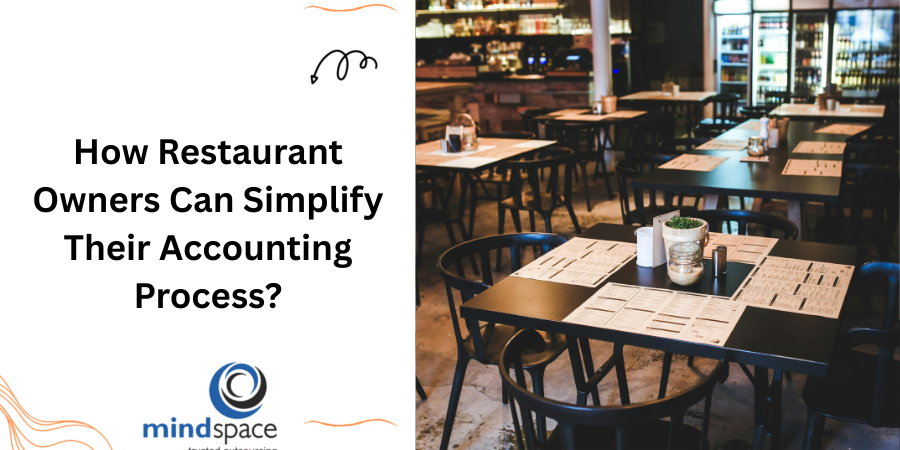How Restaurant Owners Can Simplify Their Accounting Process?
Managing a restaurant goes far beyond cooking and customer service—it’s a daily balance of operations, staffing, and financial tracking. When it comes to numbers, even a small accounting error can lead to major setbacks. For many restaurant owners, simplifying the accounting process is not just convenient—it’s essential for growth and sustainability.
1. Set Up a Dedicated System for Bookkeeping for a Restaurant
A structured bookkeeping system is the foundation of financial clarity. Using dedicated accounting software tailored to the food industry makes a significant difference. Instead of juggling spreadsheets or paper records, restaurant-specific tools allow for real-time tracking of sales, inventory, payroll, and expenses.
Automating recurring tasks like invoice uploads, payment reminders, and expense categorisation helps reduce errors and free up valuable time for core operations.
2. Separate Business and Personal Finances Early On
One common mistake restaurant owners make is blending business transactions with personal ones. This not only complicates tax preparation but also creates blind spots in financial reporting. Opening a dedicated business account ensures better tracking of income and expenses—making budgeting, forecasting, and reconciling accounts easier and more accurate.
3. Schedule Time Weekly for Financial Review
Accounting for restaurants doesn’t have to wait until month-end. Allocating just 30–60 minutes each week to review transactions, receipts, and bank statements can prevent surprises. Weekly financial check-ins also make it easier to detect discrepancies, monitor cash flow, and stay on top of supplier payments and tax obligations.
4. Use Restaurant Accounting Services to Avoid Compliance Errors
Tax regulations, payroll compliance, and industry-specific financial reporting can get overwhelming quickly. Professional restaurant accounting services bring peace of mind by handling VAT filings, HMRC compliance, payroll processing, and more. Delegating these aspects to specialists allows restaurant owners to focus on customer experience without the risk of missing legal obligations.
5. Track Inventory and Cost of Goods Sold (COGS) Closely
In food service, profitability is closely tied to inventory management. Linking inventory tracking to accounting systems provides insights into COGS—one of the largest expenses in a restaurant. Accurate COGS reports help identify waste, over-ordering, or pricing issues. Regular stock counts and integration with accounting platforms can simplify this process and improve profit margins.
6. Monitor Key Performance Indicators (KPIs)
Beyond profit and loss, metrics like table turnover rate, average order value, and labour cost percentage offer a clearer picture of operational efficiency. By tying these KPIs into the accounting dashboard, owners can make informed decisions quickly. Some accounting tools even generate visual reports to aid decision-making without needing a finance background.
7. Consider Outsourcing for Streamlined Accounting for Restaurants
As operations grow, managing finances in-house can become a burden. Outsourcing accounting for restaurants to a professional team like Mindspace Outsourcing offers a scalable, accurate, and time-saving solution. From reconciling accounts to generating monthly reports and managing taxes, outsourcing ensures consistency and accuracy while reducing overhead costs.
Conclusion
Simplifying the accounting process isn’t about cutting corners—it’s about creating a system that supports consistency, transparency, and compliance. With the right tools, habits, and professional support, restaurant owners can gain better control of their finances and make smarter, faster decisions for long-term success.
FAQs
What’s the difference between restaurant accounting and regular accounting?
Restaurant accounting often involves unique components like inventory tracking, daily sales reconciliation, and menu pricing strategies, which are not typically present in other industries.
Is outsourcing restaurant accounting cost-effective for small eateries?
Yes. Outsourcing helps avoid hiring full-time staff, reduces errors, and ensures timely tax filings, which can ultimately save money and reduce financial risks.
How often should restaurant finances be reviewed?
Weekly reviews are recommended to stay ahead of expenses, monitor cash flow, and catch inconsistencies before they escalate.
What tools help with bookkeeping for a restaurant?
Popular tools include Xero, QuickBooks, and restaurant-specific POS systems that integrate with accounting software for seamless tracking.


